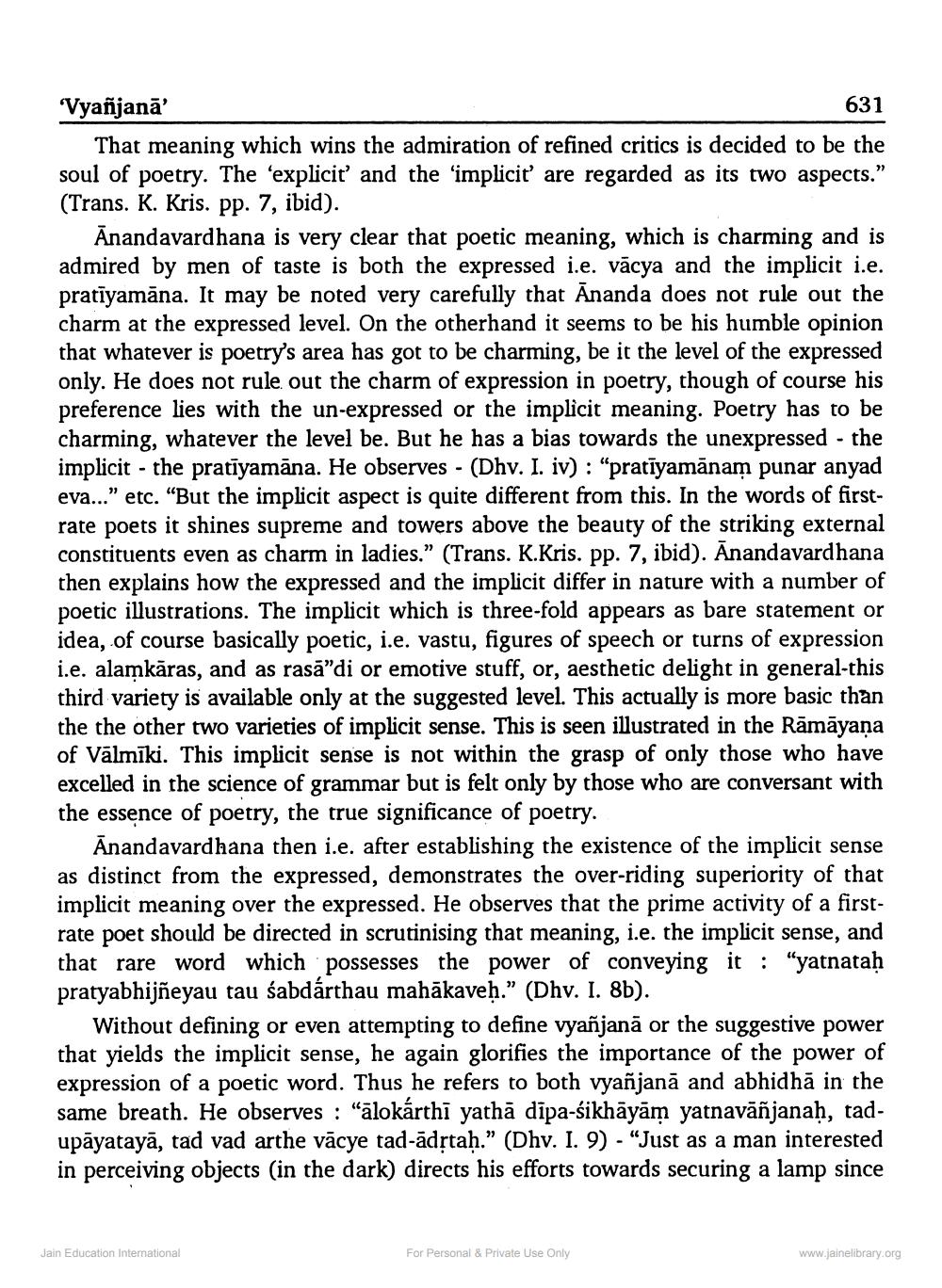________________
'Vyañjanā'
631
That meaning which wins the admiration of refined critics is decided to be the soul of poetry. The 'explicit' and the 'implicit' are regarded as its two aspects." (Trans. K. Kris. pp. 7, ibid).
Anandavardhana is very clear that poetic meaning, which is charming and is admired by men of taste is both the expressed i.e. vācya and the implicit i.e. pratīyamāna. It may be noted very carefully that Ananda does not rule out the charm at the expressed level. On the otherhand it seems to be his humble opinion that whatever is poetry's area has got to be charming, be it the level of the expressed only. He does not rule out the charm of expression in poetry, though of course his preference lies with the un-expressed or the implicit meaning. Poetry has to be charming, whatever the level be. But he has a bias towards the unexpressed - the implicit the pratīyamāna. He observes - (Dhv. I. iv): "pratīyamānam punar anyad eva..." etc. "But the implicit aspect is quite different from this. In the words of firstrate poets it shines supreme and towers above the beauty of the striking external constituents even as charm in ladies." (Trans. K.Kris. pp. 7, ibid). Anandavardhana then explains how the expressed and the implicit differ in nature with a number of poetic illustrations. The implicit which is three-fold appears as bare statement or idea, of course basically poetic, i.e. vastu, figures of speech or turns of expression i.e. alamkāras, and as rasă"di or emotive stuff, or, aesthetic delight in general-this third variety is available only at the suggested level. This actually is more basic than the the other two varieties of implicit sense. This is seen illustrated in the Rāmāyaṇa of Valmiki. This implicit sense is not within the grasp of only those who have excelled in the science of grammar but is felt only by those who are conversant with the essence of poetry, the true significance of poetry.
Anandavardhana then i.e. after establishing the existence of the implicit sense as distinct from the expressed, demonstrates the over-riding superiority of that implicit meaning over the expressed. He observes that the prime activity of a firstrate poet should be directed in scrutinising that meaning, i.e. the implicit sense, and that rare word which possesses the power of conveying it "yatnataḥ pratyabhijñeyau tau śabdárthau mahākaveḥ." (Dhv. I. 8b).
Without defining or even attempting to define vyañjanā or the suggestive power that yields the implicit sense, he again glorifies the importance of the power of expression of a poetic word. Thus he refers to both vyañjana and abhidha in the same breath. He observes: "alokárthī yathā dīpa-śikhāyām yatnavāñjanaḥ, tadupāyatayā, tad vad arthe vācye tad-ādṛtaḥ." (Dhv. I. 9) - "Just as a man interested in perceiving objects (in the dark) directs his efforts towards securing a lamp since
Jain Education International
For Personal & Private Use Only
www.jainelibrary.org




